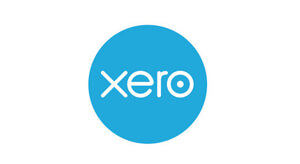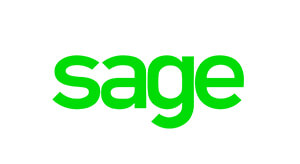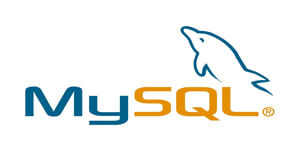Cashflow is the backbone of every business, yet many companies, big and small, struggle to manage it effectively. A business can look profitable on paper but still face financial strain if cash isn’t flowing in the right way. Without proper cash flow management, even the most promising ventures can find themselves unable to pay suppliers, employees, or rent.
At Momentum Bookkeeping, we’ve helped countless businesses across industries—from retail shops to pub cash flow optimisation, stay financially stable. Whether you’re looking for a cash flow solution for small businesses or simply want to improve your day-to-day financial health, this guide will help you get there.

Understanding Cash Flow
Cash Inflows vs. Cash Outflows: Striking a Balance
Managing cash effectively starts with understanding the difference between inflows and outflows. Inflows come from sales, loans, and investments, while outflows cover expenses like payroll, rent, and supplier payments. When inflows exceed outflows, your business is in a healthy position. When the reverse happens, trouble looms.
What Are the Three Major Types of Cash Flow?
Every business deals with three types of cash flow:
- Operating cash flow: The money generated from daily business activities, like sales and services.
- Investing cash flow: Funds spent on or earned from investments, such as property or equipment.
- Financing cash flow: Cash from loans, repayments, or investor funding.
Profitability vs. Liquidity: They’re Not the Same
One of the biggest misconceptions in small business cash flow management is assuming that profitability equates to liquidity. A business can show healthy profits but still experience cash shortages. Profitability is a long-term financial indicator, while liquidity is about having enough cash on hand to cover immediate expenses. Understanding this distinction is key to a strong cash flow strategy.
What is a Cash Flow Strategy?
A cash flow strategy is a structured plan to manage how money moves in and out of your business. It ensures that inflows from sales, loans, or investments exceed outflows such as wages, supplier payments, and overhead costs. By refining this strategy, businesses can avoid shortfalls and maintain financial health.
Creating a Cashflow Forecast
Why Forecasting is a Game Changer?
One of the most effective answers to “How do you manage cash flow effectively?” is cash flow forecasting. This allows you to predict financial highs and lows, ensuring you’re never caught off guard. By forecasting, you can plan for seasonal slowdowns, unexpected expenses, and investment opportunities.
What Are the Cash Management Models?
Several cash management models can help businesses forecast and optimise cash flow:
- The Baumol Model: Helps businesses decide when to convert investments into cash for daily expenses.
- The Miller-Orr Model: Maintains cash balances within a target range, reducing liquidity risk.
- The Stone Model: Focuses on setting aside emergency funds for unforeseen expenses.

Optimising Accounts Receivable
Encouraging Faster Payments
Late payments can severely impact a business. Offering early-payment discounts, sending automated reminders, and enforcing strict payment terms can help keep cash flow steady.
Invoice Factoring: A Smart Short-Term Fix
If you’re struggling with delayed payments, invoice factoring allows you to sell outstanding invoices to a third party for immediate cash. This is a particularly useful cash flow solution for small businesses that rely on steady cash inflows.
Tech to the Rescue
Automation tools can chase invoices for you, reducing admin time. Using digital payment options like Stripe or GoCardless speeds up customer payments.
Double-Entry Bookkeeping: A Reliable Accounting Method
A robust accounting system is essential for tracking cash movements. Double-entry bookkeeping records each transaction in two accounts, ensuring accuracy and reducing financial discrepancies. Many businesses in Glasgow rely on bookkeepers in Glasgow to maintain this system effectively. Alternatively, accounting software like Xero and QuickBooks makes this process easier by automating cash flow reports and alerts.
Managing Accounts Payable
Negotiating Better Terms with Suppliers
Managing pub cashflow or retail business expenses requires smart supplier negotiations. Request extended payment terms while ensuring on-time payments to avoid penalties.
Prioritising Payments for Financial Stability
To prevent cash shortages, businesses should categorise payments by priority:
- High-priority: Rent, wages, and tax obligations.
- Medium-priority: Inventory and marketing costs.
- Low-priority: Discretionary spending, such as non-essential software subscriptions.

Building an Emergency Cash Reserve
What Are the Five Principles of Cash Handling?
To ensure financial stability, businesses should follow these five principles of cash handling:
- Segregation of duties: Assign cash management tasks to different employees.
- Cash tracking: Keep detailed records of cash inflows and outflows.
- Regular reconciliation: Match bank statements with accounting records.
- Secure storage: Store cash safely to prevent theft.
- Consistent audits: Conduct periodic financial audits.
How Much Should a Business Keep in Cash Reserves?
Experts suggest keeping at least three to six months’ worth of expenses in an emergency fund. This provides a safety net for unexpected downturns, whether it’s a slow season or an unforeseen expense.
Alternative Cashflow Safety Nets: If maintaining a large cash reserve isn’t feasible, a business line of credit can provide financial flexibility when needed.
Reducing Expenses Without Compromising Quality
Identifying Unnecessary Costs
Unmonitored expenses can quietly drain cash reserves. Regular audits can identify excessive spending on utilities, office supplies, or inefficient processes.
What is an Example of Cash Flow Management?
A classic example of cash flow management is a pub adjusting its inventory orders based on seasonal demand. If sales slow in winter, reducing stock orders prevents cash being tied up in unsold goods.
Lean Operations: Maximising Efficiency
Cost-cutting doesn’t mean sacrificing quality. Businesses can adopt a lean approach by:
- Outsourcing non-core tasks.
- Renegotiating contracts with suppliers.
- Switching to digital payment solutions to reduce transaction fees.

The importance of reconciliation
Financial Tools for Better Cash Flow Management
Using Loans and Credit Strategically
Loans and credit can provide temporary cash relief, but over-reliance can lead to debt accumulation. Businesses should ensure that borrowed funds contribute to revenue growth, such as investing in new equipment or expansion.
The Role of Business Credit Cards
Credit cards can help cover short-term expenses but should be managed carefully to avoid high-interest debt. Many bookkeepers in Glasgow advise businesses to use them only when necessary and pay off balances promptly.
Invoice Financing: A Cashflow Lifeline
For businesses with long invoice payment cycles, invoice financing can provide immediate funds by leveraging unpaid invoices as collateral.
Scaling Responsibly Without Financial Overextension
The Risks of Overexpansion
Growing too quickly can put pressure on cash reserves. Many businesses struggle when they invest heavily in expansion without ensuring steady income.
The Key Principle of Cash Management
The fundamental rule of cash management is ensuring that outflows never exceed inflows. Businesses should always have enough liquidity to cover operational costs, even during slow periods.
What Are the Four Pillars of Cash Flow?
For stable finances, businesses should focus on these four pillars of cash flow:
- Revenue generation: Increasing income through consistent sales and marketing strategies.
- Expense control: Managing costs efficiently without reducing quality.
- Debt management: Using loans and credit wisely.
- Cash reserves: Keeping emergency funds for unexpected needs.

Take Control of Your Cashflow Today
Effective cash flow management isn’t about reacting to financial issues, it’s about planning ahead. By implementing smart strategies, you can keep your business running smoothly and avoid cash shortages.
At Momentum Bookkeeping, we specialise in helping businesses, from start-ups to pubs, stay financially secure. Whether you need expert advice on double-entry bookkeeping, cash forecasting, or a bookkeeper in Glasgow to manage your finances, we’re here to help.
Get in touch with Momentum Bookkeeping today for expert guidance on cash flow management strategies. Let’s keep your business financially strong!

Momentum Bookkeeping Ltd
Mentieth House, 29 Park Circus, Glasgow, G3 6AP
Call. 0141 375 1240
Email. info@mvbooks.co.uk





